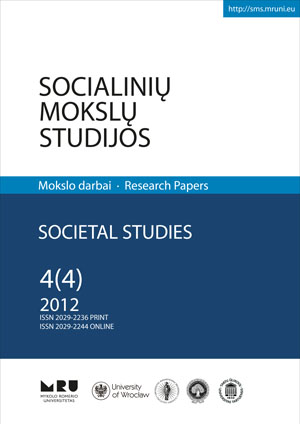Gamtosaugos programų įgyvendinimo žemės ūkyje socialiniai ekonominiai aspektai
Social and Economical Aspects of the Implementation of Nature Conservation Programmes in Agriculture
Author(s): Pranas MierauskasSubject(s): Social Sciences
Published by: Mykolas Romeris University
Keywords: nature conservation policy and programme; biological diversity; biodiversity-friendly farming; agri-environmental measures
Summary/Abstract: The aim of this article is to explore the application of nature conservation programmes in agriculture in terms of farmer willingness and motivation to be involved in the results and output-oriented activities. Agri-environmental programmes, as an instrument for nature conservation, have been used in European Union countries. One of the main aims of these programmes is to increase biodiversity in farmland. After 10 years of implementation of these measures, several researchers in some EU countries carried out an investigation and assessed the effectiveness of agri–environment measures. Assessments in different countries revealed that the measures have been implemented in ineffective ways since they have been focusing on farmers’ participation, but not on results and outputs. On the contrary, new nature conservation programmes promote farmer active participation in resultoriented farming. The new type of farming, biodiversity-friendly farming, is oriented towards agriculture practices outcomes and outputs. The new type of farming is not attractive due to additional requirements for farmers. Engagement of farmers in biodiversity-friendly farming depends on different social and economical aspects in certain countries. In order to investigate farmer possibilities to participate in the new programme, interviews with Lithuanian farmers were conducted, concerning their willingness to participate in biodiversity–friendly farming. The results discovered that farmers are not willing to participate in the programme not only because of social and economical barriers, but also because of insufficient understanding of biodiversity conservation importance. In comparison to more economically developed countries, Lithuanian farmers expressed less motivation towards biodiversity–friendly farming practices and probably this is related to the absence of widely used nature conservation education programmes among farmers.
Journal: Socialinių mokslų studijos
- Issue Year: 4/2012
- Issue No: 4
- Page Range: 1503-1517
- Page Count: 16
- Language: Lithuanian

